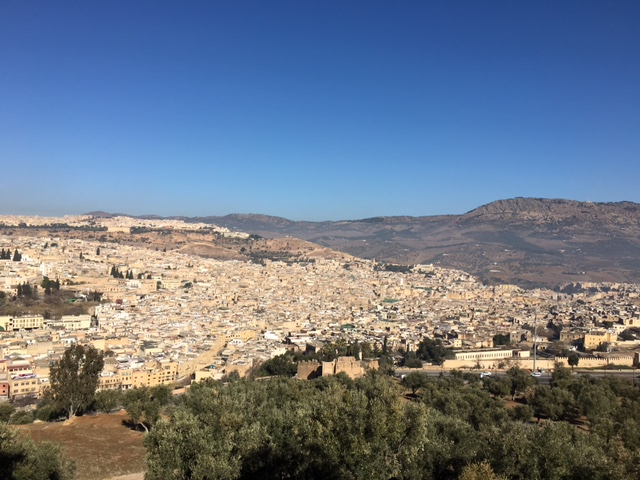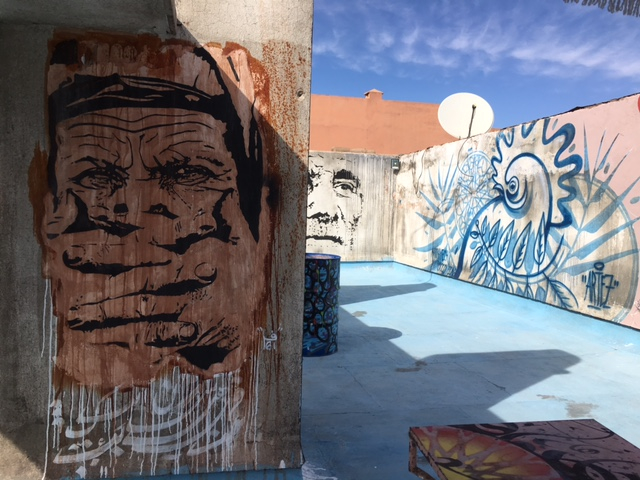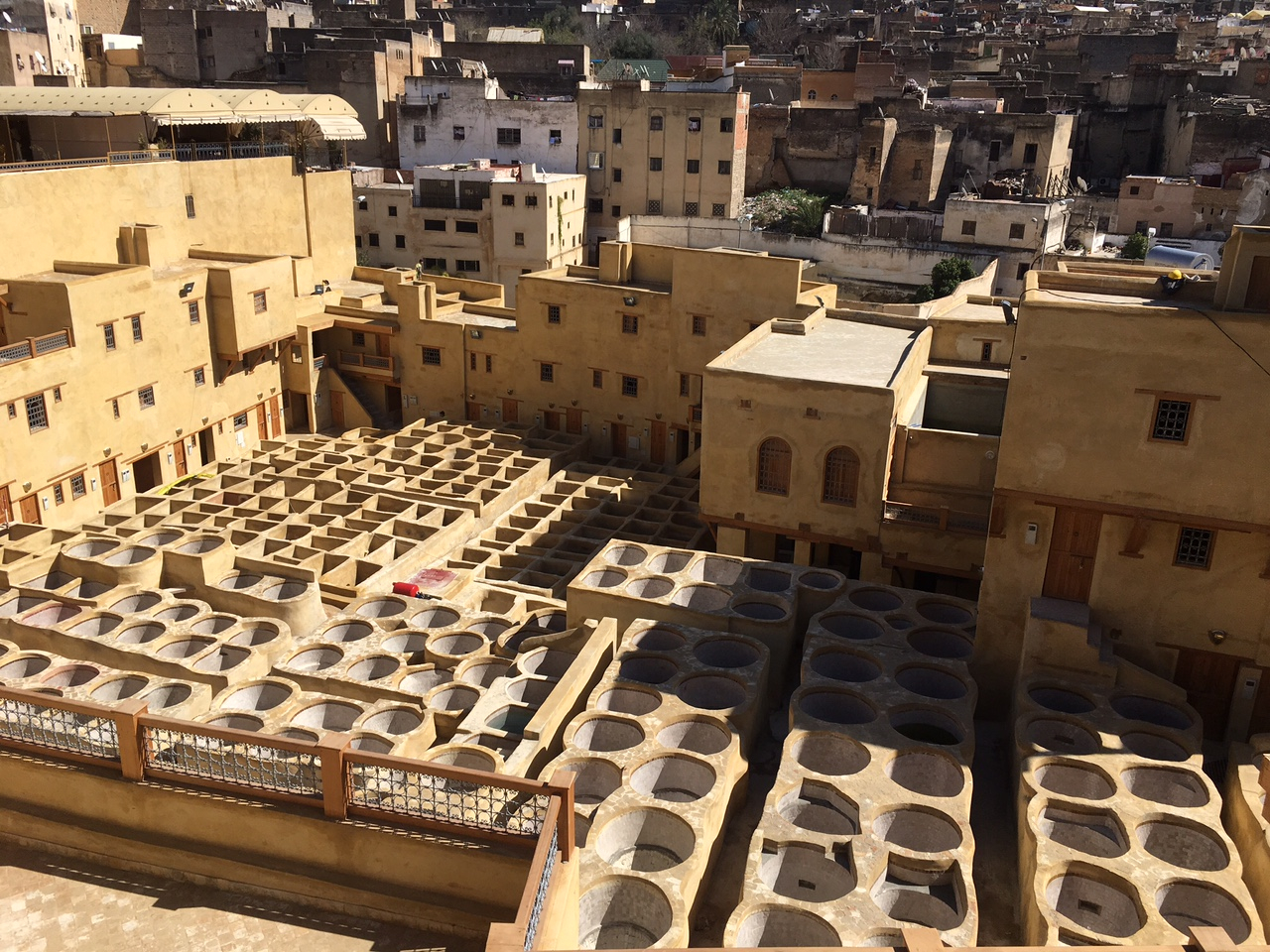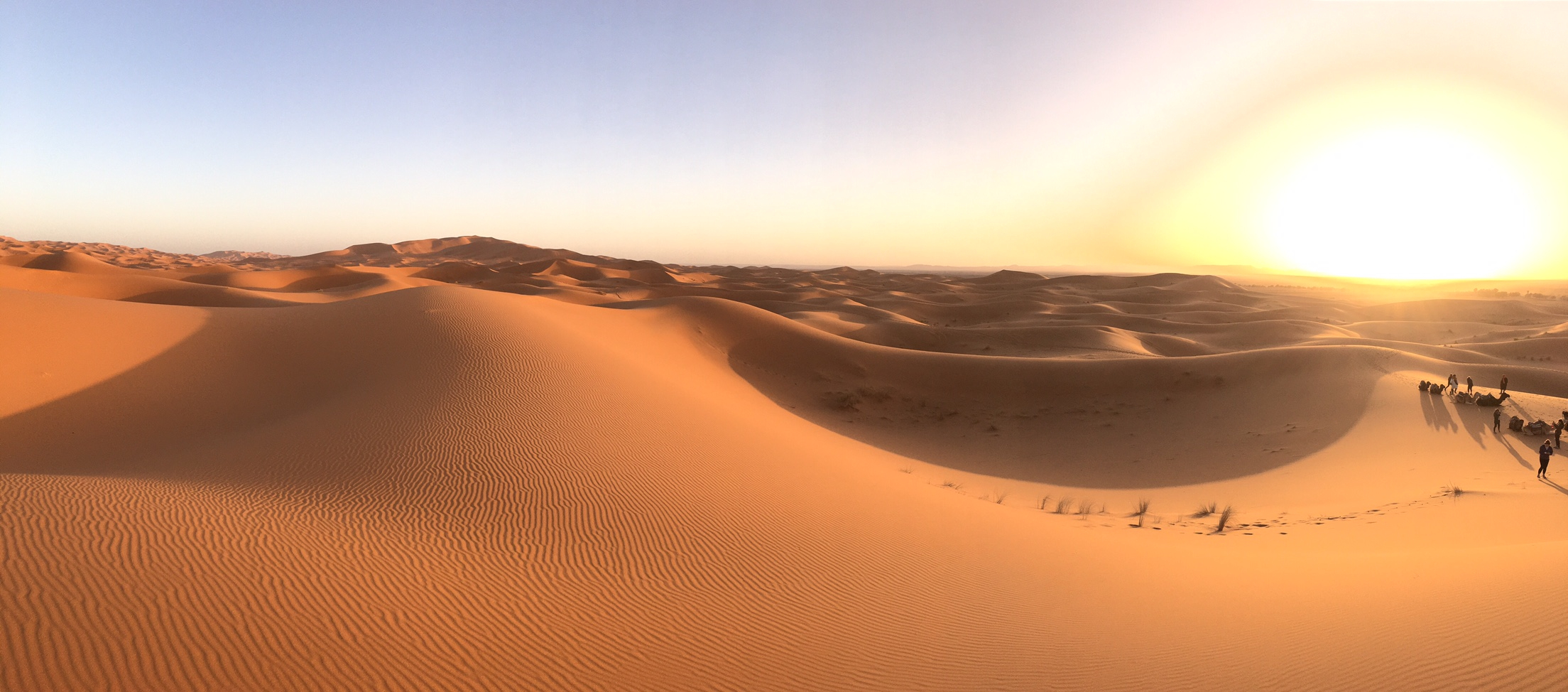Over the past few weeks, I have developed a routine: I wake up to the city-wide call to prayer in the early morning. I prepare my school supplies and do some last minute studying. I walk up the narrow staircase to my host mother and siblings eating breakfast. My mother gestures for me to get some bread on the table, and use the olive oil, honey, and jam to spread on the bread while she pours me some coffee and mint tea. After eating for a bit, I realize I have lost track of time and have to hurry off to class. I make a shaking gesture to my host mother trying to communicate with her that I need to run, and she does the same gesture back to me while making a noise that is supposed to imitate the sound of rushing feet. I thank her and dash down the stairs to get my jacket and backpack and open the door to the slowly awakening medina. Breathing in the cold morning air, I walk around the street merchants setting up their displays, mothers bringing their young kids to school while dodging bikes and motorcycles. These tiny, winding streets that only a short time ago felt like an indecipherable maze, now feel like part of a normal morning commute.

Fez’s medina neighborhood
As I walk up to the wooden door of my host institution, I ring the buzzer and wait a few seconds for the click signaling that I can enter. I exchange good-mornings with the staff member at the front desk and hurry over to my Arabic class. When our class is over, my other classmates and I exchange complaints about how difficult Arabic is, but how glad we are that we are learning it in a country like Morocco. We grab some coffee from the coffee machine and head to our lecture. I am constantly in awe of the amazing people that we have the opportunity to listen to and ask questions to. One day it could be a foreign correspondent for Reuters or Associated Press, and the next day it could be a human rights activist who was jailed and is explaining censorship in Morocco.

An art exhibition in Marrakesh.
After the first lecture, we head to lunch and discuss and debate the contents of the lecture and what we might want to do for our independent study project. After filling our bodies and minds, we head to our final lecture of the day, where we will once again be enlightened by an amazing professional. After our classes, we split up into groups depending on who needs to study what, and head off to various cafes to study. I typically study in a cafe called Arab Cafe located just off of Mohammed the V Ave. After studying for a few hours, and ingesting more than our fair share of mint tea and second hand smoke, we head back to our respective host families and enjoy a traditional family dinner.
Although this routine was becoming comfortable, this past week we had the opportunity to explore outside of Rabat. Getting into a routine, you can kind of take the place you are in for granted. Some of the things you once saw as novel could become monotonous. This excursion shook me out of that. We were able to travel to the Medina of Fez where we saw the tanneries and the various other textile cooperatives. We traveled to the Sahara and watched the sunset and rise over the sand dunes. We scaled the Atlas Mountains, and we went to a traditional medicine cooperative in Marrakesh that sold pure Argan oil, among other things.

Leather tanneries of Fez.

Rissani, Sahara Desert.
While riding in the bus between these cities, I had a lot of time to reflect. As I watched the landscape rush past I became aware that this- what I was seeing, and smelling, and feeling, and thinking- would have all been a distant dream had it not been for the Gilman Scholarship. The Gilman Scholarship made what I once thought was impossible, a very real reality. For that, I am deeply and truly grateful for this opportunity and will live it out to the absolute fullest. When I turn the corner into the Medina during my morning routine, I’ll make sure to stop, look around, take a deep breath and smile, knowing that even if I am late for class, I am late for class in Rabat, Morocco.



